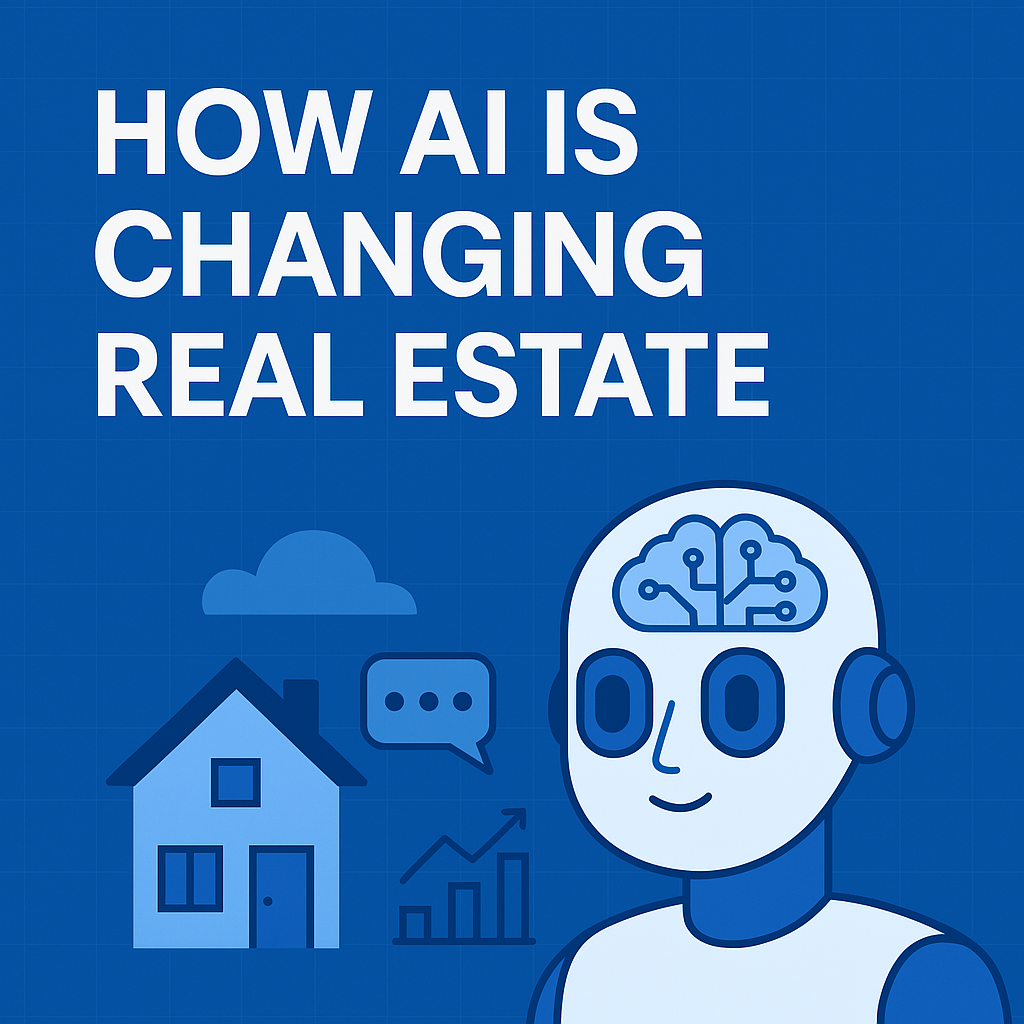
Artificial Intelligence (AI) is making waves across every industry — but nowhere is the transformation more exciting than in real estate. Whether you’re house hunting, investing, or managing properties, AI is quietly working behind the scenes to make everything smarter, faster, and more efficient.
In this post, we’ll start with the basics — like we’re explaining it to a 4th grader — and then gradually go deeper into how AI is reshaping real estate at every level.
👋 Starting Simple: What Is AI in Real Estate?
Imagine if a super-smart robot could help people buy and sell houses faster. That’s what AI does in real estate. It reads maps, prices, photos, and numbers in seconds, helping humans make better choices.
Real estate agents, buyers, and investors now use AI to:
- Estimate home prices
- Find properties faster
- Answer questions automatically
- Predict what kind of homes someone might like
It’s like having a digital real estate assistant that never sleeps.
🔎 Smarter Search, Faster Deals
Websites like Zillow, Redfin, and Realtor.com use AI to recommend homes you might like — the same way Netflix suggests shows. AI tracks what people search, click, and save to deliver personalized property suggestions.
Meanwhile, agents and brokerages use AI chatbots that can book showings, answer FAQs, and capture leads — even outside of business hours. For busy professionals, that’s a game changer.
📈 For Investors: Forecasts, Valuations, and Strategy
Now let’s get into the fun stuff.
For real estate investors, AI is a tool for analyzing markets, evaluating deals, and predicting growth. With predictive analytics, AI models can forecast:
- Future rent prices
- Home appreciation
- Neighborhood changes
- Investment risk levels
Another tool investors rely on is the Automated Valuation Model (AVM). These models use historical sales data, local comps, and even property photos to instantly estimate a home’s value — especially helpful when analyzing dozens or hundreds of properties.
🛠️ Behind the Scenes: Automation in Action
AI isn’t just for searching and pricing — it’s also working behind the scenes.
In commercial and multifamily real estate, AI is used to:
- Underwrite loans
- Review leases
- Detect document fraud
- Manage tenant communications
- Automate marketing campaigns
This means fewer delays, fewer errors, and more scalability — especially for real estate pros managing multiple assets.
📷 AI Can “See” Homes Too
Thanks to computer vision, AI can now analyze photos and video to:
- Assess property conditions
- Detect home features (granite countertops, stainless appliances, etc.)
- Generate photo tags for listings
- Build 3D virtual tours
Combined with drone footage and LiDAR scanning, AI-powered visuals make it possible to evaluate properties remotely with confidence.
💼 Advanced Investors: Data Is the New Deal Flow
At the highest level, AI isn’t just making real estate more efficient — it’s helping firms and funds make smarter strategic decisions.
Institutional investors and REITs are now using AI to:
- Spot hyperlocal market shifts
- Optimize portfolios
- Balance risk vs. reward in real time
- Drive build-to-rent and mixed-use development decisions
- Track macroeconomic trends like inflation and migration patterns
This level of insight was almost impossible 10 years ago — now it’s expected.
✅ Final Takeaways: What AI Is Doing for Real Estate
Here’s a quick summary of what we covered:
- 🧠 AI is making property search, pricing, and management faster and smarter
- 🤖 Buyers and renters enjoy more personalized and responsive experiences
- 📊 Investors use AI for forecasting, risk analysis, and valuation modeling
- 🛠️ Brokers and managers automate workflows, communication, and compliance
- 🌐 AI-powered tools like virtual tours, AVMs, and chatbots are now mainstream
In short: AI is no longer a futuristic idea in real estate — it’s a core part of how the industry operates today. And we’re just getting started.
Leave a Reply